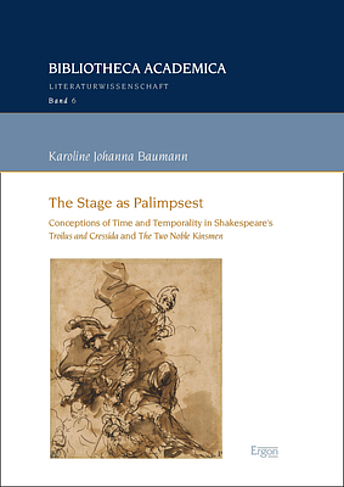englischThis study shows that Shakespeare’s plays challenge a system of periodization that divides history into three distinct eras (antiquity, the Middle Ages, modernity). In Troilus and Cressida and The Two Noble Kinsmen, several conceptions of time and temporality are played through in a way that shows that the idea of linear time and progressive, teleological history upon which our concept of periodization is based, is inadequate to the complexities of temporal relations. Instead, these plays, being based on ancient sources that were rewritten many times throughout the Middle Ages and the Renaissance, suggest an understanding of time that is best expressed with the help of the metaphor of the palimpsest. A palimpsest contains multiple temporal layers that are entangled and interwoven without hierarchy rather than successively or chronologically arranged. The question of period construction is thus posed performatively in these plays, with a special focus on the invention of the Middle Ages.
Die Studie untersucht frühneuzeitliche Epochenkonzepte mit dem Ziel einer kritischen Hinterfragung des Selbstverständnisses der Neuzeit und der damit verbundenen, das Mittelalter marginalisierenden Periodisierung. Sie zeigt, wie auf der frühneuzeitlichen Bühne Begriffe von Zeit und Zeitlichkeit durchgespielt werden, und lässt deutlich werden, dass die Vorstellung von Linearität und Fortschrittsgeschichtsschreibung, die unseren Epochenbegriffen zugrunde liegt, zu kurz greift. Die beiden untersuchten Stücke, die auf antiken Quellen basieren, aber sowohl im Mittelalter als auch in der Neuzeit vielfach umgeschrieben und neu interpretiert wurden, legen einen palimpsestartigen Zeitbegriff nahe. Ein Palimpsest enthält verschiedene Zeitstufen nicht in sukzessiver oder chronologischer Anordnung, sondern unhierarchisch neben- und übereinandergelagert. So wird die Frage nach der Epochenkonstruktion bei Shakespeare performativ gestellt, mit besonderem Fokus auf der Darstellung des Mittelalters.



